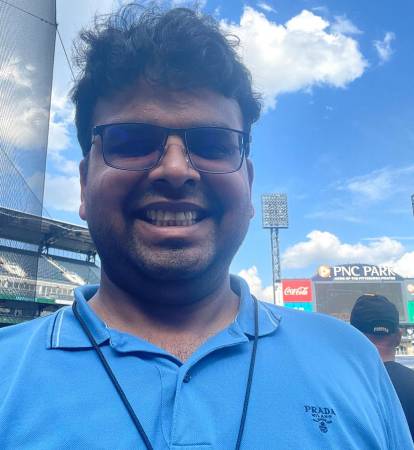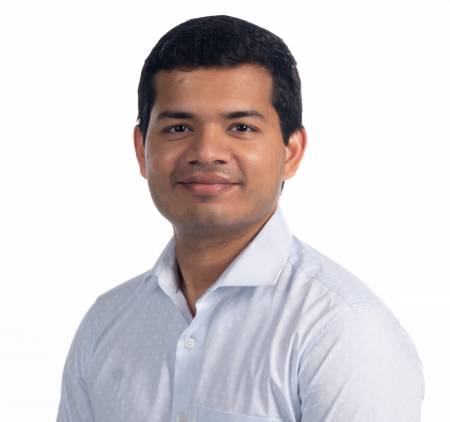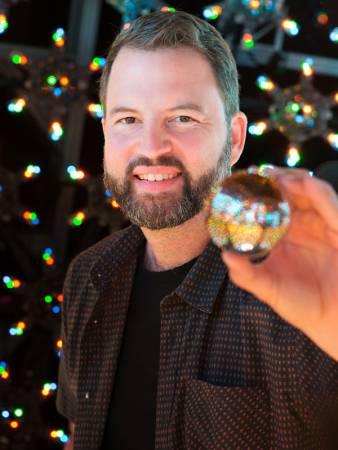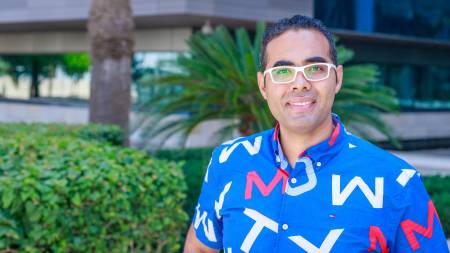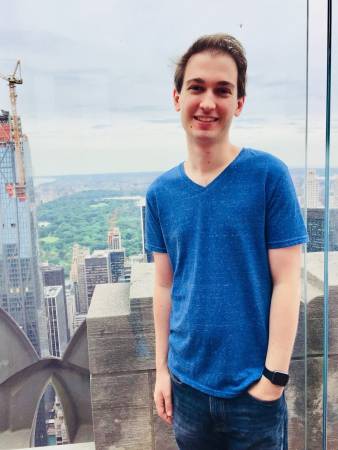Seminar
Generating Beautiful Pixels
Abstract: In this talk, I will present three experiments that use low-level image statistics to generate high-resolution detailed outputs. In the first experiment, I will use 2D pixels to efficiently mine hard examples for better learning. Simply biasing ray sampling towards hard ray examples enables learning of neural fields with more accurate high-frequency detail in less [...]
Towards Reliable Computer Vision Systems
Abstract: The real world has infinite visual variation – across viewpoints, time, space, and curation. As deep visual models become ubiquitous in high-stakes applications, their ability to generalize across such variation becomes increasingly important. In this talk, I will present opportunities to improve such generalization at different stages of the ML lifecycle: first, I will [...]
Transforming Hollywood Visual Effects with Graphics and Vision
Abstract: Paul will describe his path to developing visual effects technology used in hundreds of movies, including The Matrix, Spider-Man 2, Benjamin Button, Avatar, Maleficent, Furious 7, and Blade Runner: 2049. These techniques include image-based modeling and rendering, high dynamic range imaging, image-based lighting, and high-resolution facial scanning for photoreal digital actors. Paul will also [...]
Vision without labels
Abstract: Deep learning has revolutionized all aspects of computer vision, but its successes have come from supervised learning at scale: large models trained on ever larger labeled datasets. However this reliance on labels makes these systems fragile when it comes to new scenarios or new tasks where labels are unavailable. This is in stark contrast to [...]
Learning Meets Gravity: Robots that Learn to Embrace Dynamics from Data
Abstract: Despite the incredible capabilities (speed and repeatability) of our hardware today, many robot manipulators are deliberately programmed to avoid dynamics – moving slow enough so they can adhere to quasi-static assumptions of the world. In contrast, people frequently (and subconsciously) make use of dynamic phenomena to manipulate everyday objects – from unfurling blankets, to [...]
Large Multimodal (Vision-Language) Models for Image Generation and Understanding
Abstract: Large Language Models and Large Vision Models, also known as Foundation Models, have led to unprecedented advances in language understanding, visual understanding, and AI. In particular, many computer vision problems including image classification, object detection, and image generation have benefited from the capabilities of such models trained on internet-scale text and visual data. In [...]
Learning and Control for Safety, Efficiency, and Resiliency of Embodied AI
Abstract: The rapid evolution of ubiquitous sensing, communication, and computation technologies has revolutionized of cyber-physical systems (CPS) across virous domains like robotics, smart grids, aerospace, and smart cities. Integrating learning into dynamic systems control presents significant Embodied AI opportunities. However, current decision-making frameworks lack comprehensive understanding of the tridirectional relationship among communication, learning and control, [...]
Imaginative Vision Language Models: Towards human-level imaginative AI skills transforming species discovery, content creation, self-driving cars, and emotional health
Abstract: Most existing AI learning methods can be categorized into supervised, semi-supervised, and unsupervised methods. These approaches rely on defining empirical risks or losses on the provided labeled and/or unlabeled data. Beyond extracting learning signals from labeled/unlabeled training data, we will reflect in this talk on a class of methods that can learn beyond the vocabulary [...]
World Knowledge in the Time of Large Models
Abstract: This talk will discuss the massive shift that has come about in the vision and ML community as a result of the large pre-trained language and language and vision models such as Flamingo, GPT-4, and other models. We begin by looking at the work on knowledge-based systems in CV and robotics before the large model [...]
Data-Efficient Learning for Robotics and Reinforcement Learning
Abstract: Data efficiency, i.e., learning from small datasets, is of practical importance in many real-world applications and decision-making systems. Data efficiency can be achieved in multiple ways, such as probabilistic modeling, where models and predictions are equipped with meaningful uncertainty estimates, transfer learning, or the incorporation of valuable prior knowledge. In this talk, I will [...]
